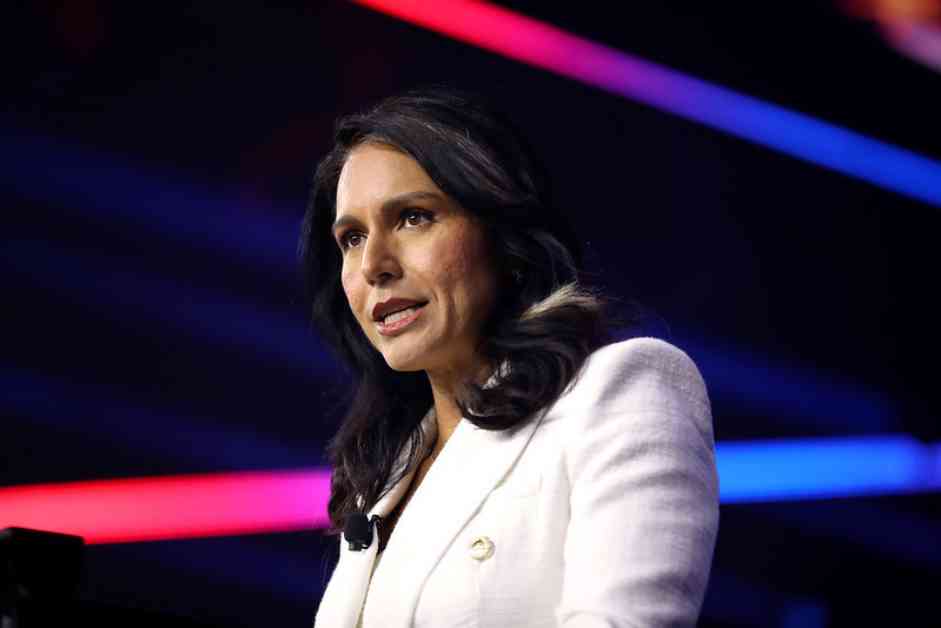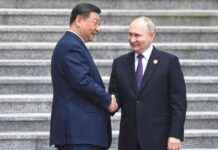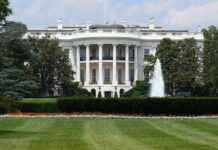In a tight 52-48 vote, the US Senate has officially confirmed Tulsi Gabbard as the new Director of National Intelligence, a move that has stirred controversy and raised alarm bells among national security experts. Gabbard, a known skeptic of Ukraine’s NATO aspirations and someone who has previously aligned with Russian narratives about Ukraine, now finds herself at the helm of America’s intelligence community.
The confirmation of Gabbard has sent shockwaves through the political landscape, with Senate Minority Leader Chuck Schumer cautioning that her appointment could jeopardize national security and intelligence operations both domestically and abroad. This development has sparked immediate concerns for Ukraine, a country that heavily relies on US intelligence support to fend off Russian aggression.
Gabbard’s critical views on Ukraine’s NATO membership prospects have come under intense scrutiny, especially in light of recent comments by Pentagon chief Pete Hetseth in Brussels dismissing the possibility of Ukraine joining the alliance as part of a negotiated settlement with Russia. This has sent ripples of concern through Ukraine, where NATO membership has long been viewed as a linchpin of national security and a bulwark against Russian encroachment.
### Background: Tulsi Gabbard’s Stance on Ukraine and Intelligence Role
Tulsi Gabbard’s confirmation as the Director of National Intelligence has reignited concerns about her controversial views on Ukraine and her alignment with Russian narratives. Prior to Russia’s invasion of Ukraine, Gabbard advocated for accommodating Russian security interests by ensuring that Ukraine would never become a NATO member. Her statements during the early stages of the conflict in 2022 drew criticism for downplaying Russia’s aggression and promoting a narrative that favored appeasement.
Following Russia’s invasion, Gabbard further stoked controversy by amplifying Russian disinformation about US-funded biological research facilities in Ukraine. These claims, which were widely debunked by international fact-checkers and US intelligence officials, were part of Russia’s broader information warfare campaign aimed at undermining Ukraine’s image and Western support for the country.
While Gabbard did condemn Russia’s invasion as “reprehensible” in April 2022, she simultaneously drew parallels between US support for Ukraine and America’s involvement in Afghanistan, framing military aid to Ukraine as a potential catalyst for another protracted conflict. This narrative, which echoes Russian propaganda, has raised concerns about Gabbard’s commitment to supporting Ukraine’s security interests.
### Gabbard’s Role as Director of National Intelligence
As the newly appointed Director of National Intelligence, Gabbard will oversee all 18 US intelligence agencies, including those responsible for assessing Russian military capabilities and intentions, monitoring disinformation campaigns, analyzing intelligence shared with Ukraine, and evaluating threats to NATO allies. Her confirmation comes at a critical juncture for US-Ukraine intelligence cooperation, which has been instrumental in countering Russian aggression and supporting Ukraine’s defense capabilities.
During her confirmation hearing, Gabbard faced tough questions from Republican senators about her views on Russian aggression, government surveillance, and the case of NSA leaker Edward Snowden. While she acknowledged Snowden’s legal transgressions, she stopped short of labeling his actions as treason, sparking further debate about her stance on national security and whistleblowers.
The appointment of Gabbard as the Director of National Intelligence has sparked concerns among Western intelligence experts about the implications for intelligence-sharing arrangements that have been vital for Ukraine’s defense capabilities. Ukrainian officials have yet to comment on Gabbard’s confirmation, but the broader implications for US-Ukraine relations remain a point of contention.
In conclusion, Tulsi Gabbard’s confirmation as the Director of National Intelligence has raised red flags about her controversial views on Ukraine and alignment with Russian narratives. As she assumes her new role, the spotlight will be on her ability to navigate the complex landscape of US intelligence and safeguard America’s national security interests. The implications for US-Ukraine relations and intelligence cooperation remain a critical concern for policymakers and analysts alike.

















